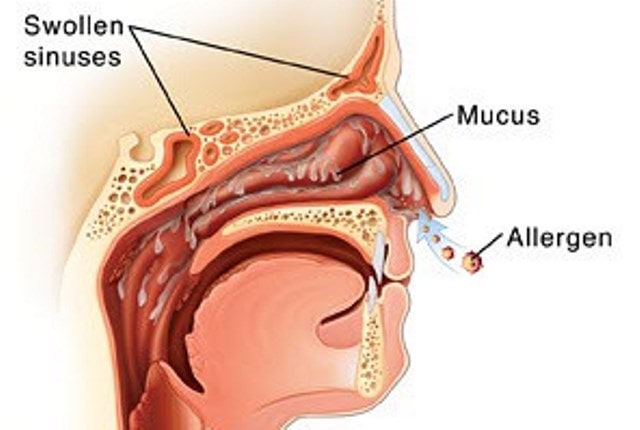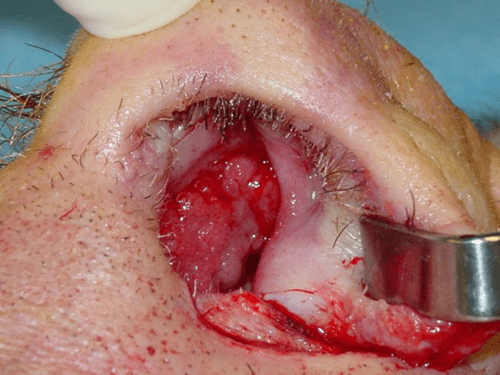A number of women experience a stuffy nose during pregnancy. It is therefore normal for women to wonder what causes a stuffy or clogged nose during pregnancy, when it occurs and if there are remedies for this problem during pregnancy. The answers to these and much more including a stuffy nose in early pregnancy can be found below. Read on to learn.
Is a Stuffy Nose a Sign of Pregnancy

A stuffy nose could be a sign of pregnancy though it is likely to go unnoticed. It is rarely mentioned among the conventional signs of pregnancy. As a result, few people are aware that it could be indicative of a pregnancy.
A study conducted among both pregnant and women who were not pregnant shows that pregnant women experienced cold like symptoms, a stuffy or clogged included, between the eighth and tenth days post ovulation and fertilization. This is around the same time when implantation occurs.
Some women though don’t experience a stuffy or blocked nose until the second trimester. It can therefore not be used as an only way of signaling pregnancy but if it occurs with other symptoms, it definitely will be a sign of pregnancy.
Causes of Stuffy Nose During Pregnancy or When Pregnant
During pregnancy, the body becomes more sensitive. This tends to worsen allergic reactions. As a result, most women could find that they react to things that did not bother them previously. This may lead to a stuffy or blocked nose.
There is an increase in the volume of blood that a woman has in her body during pregnancy. This increases blood flow to the nasal vessels which may cause swelling of the nasal membrane. This causes nasal congestion or a nose that is stuffy.
The production of mucus in the body also tends to increase when one is expecting. This could be attributed to the rise in estrogen and other hormonal levels which could also lead to swelling of the mucous membrane. If this fills up the nasal passage, the pregnant woman feels a stuffy or blocked nose.
Stuffy Nose during Early Pregnancy
A stuffy nose during pregnancy is mostly experienced starting from the second trimester but it can as well kick in as early as the first days in pregnancy. The cause for stuffy or clogged nose in early pregnancy is the increase in production levels of estrogen. The body also starts to nourish the developing fetus leading to an increasing level of blood volume. Estrogen also increases the production of mucus in the body.
The high blood volume may cause the blood vessels to swell. All these combined can make your nose stuffy. One does not need to have a cold to get a stuffy nose during early pregnancy.
How to Unstuff a Stuffy Nose during Pregnancy

When one experiences a stuffy nose during pregnancy, they can do the following to unstuff it:
Steam therapy: This can be achieved using various techniques. One would be to take a hot shower and inhale steam while at it. Another one would be running hot water in the bathroom and sitting in there to breathe in the vapor. The last and most used one is to fill a vessel with hot water, covering yourself with a towel and inhaling the steam. This is likely to help decongest the nose.
Humidifying a room using a humidifier or vaporizer helps to relieve pressure from nasal passage by reducing swelling. It also helps to keep the passage moisturized. To ensure that your pregnancy is not affected by bacteria and viruses have the water changed daily. Wash the equipment before re-filling it with clean, boiled or distilled water.
Avoid being around people who smoke when they are doing so. Other than being harmful to the unborn, smoking could lead to swelling of the nasal membranes.
A saline solution is also a great way to unstuff a stuffy nose during early pregnancy. Use it as a spray or for nasal irrigation using a neti pot.
No medicine should be taken without consultation with the doctor.
Remedies for Pregnancy Stuffy Nose or Remedies for Stuffy or Blocked Nose during Pregnancy
If you are looking for remedies for stuffy nose during pregnancy, consider using saline solution to clear up the nose. This is the best remedy there is as it contains no chemicals. A neti pot has a higher rate of efficiency as it makes nasal irrigation possible. No prescription is required for this. Saline solution helps in rinsing the nose thus clearing all the debris that may be making the nose stuffy. A saline solution can be used as a nasal spray as well.

Steam also helps to relieve congestion. This can be achieved by taking a hot shower and inhaling the steam while at it. Let the shower last longer than normal. One could also sit in the bathroom for a while longer after they are done with the shower so they can inhale more of the steam.
If one doesn’t want to take a shower, they can dip in a piece of cloth in hot water and hold it on their face. Breathe in while it is there. Another way to inhale steam is by filling a pot with hot water. One then bends down to it with the head covered. Inhale the steam for quick relief.
One of the causes of a stuffy or blocked nose is dry air. To counter this and relief your nose that is stuffy, turn on the humidifier or a vaporizer. The filter should be replaced as often as possible and water changed daily. Follow manufacturer directions when cleaning it. These precautions will help ensure that the equipment does not turn into a breeding ground for bacteria or even mosquitoes.
While sleeping, elevate your head with using more pillows. This does not only relieve heart burns, it is also great for a nose that is stuffy.
Exercising is another remedy for pregnancy stuffy nose. Indoor exercises may be best when there is a lot of dust outside. This or any other form of pollution may cause more irritation to the nasal membranes.

For allergic people, avoiding triggers and potential irritants will help to avoid a your nose being stuffy. Avoid places with new paint, areas where people smoke and gardens when pollen is being produced.
If these do not work, consult your doctor to get some prescription. They may give you the go ahead to purchase some of the following medications for stuffy nose during pregnancy that can help:
Nasal Decongestants: Some gynecologists believe that these are harmless for both baby and mother. Others do not agree they are safe. Ask your regular gynecologist for his opinion.
Antihistamines: there are some that are safe for pregnant women while others are not. Talk to your doctor for directions. They are likely to recommend first generation antihistamines if the stuffiness is caused by allergic reaction.


